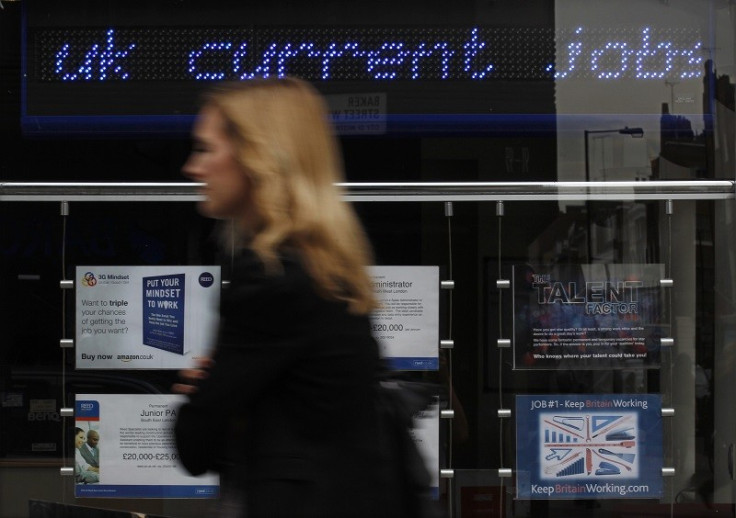Top New Year's Resolutions for Working Conditions in 2014

This year marked the rise of employees' rights after appalling working conditions in Asian clothes factories to the scandal of zero-hour contracts and meagre living wages in the UK caused calls for change across the globe.
As we enter 2014, some of IBTimes UK's business journalists detail what New Year's Resolutions they hope for.
Ian Silvera | More Clarity on Zero-hour contracts
Zero-hour contracts became the hot labour market debating topic at the end of 2013. For some they represented what is worse about the UK's employment laws, while others championed the arrangements' flexibility.
But the biggest problem for both sides of the argument is that there is no such thing as a 'zero-hour contract'. Well, there is no legal term at least.
This is a problem for some workers who cannot turn down work or want to be employed by another company under a so-called 'zero-hour contracts', while their employer can give them as much or as little work as they like.
The government has proposed it will overcome this asymmetry by making sure workers will be able to turn down work and can choose to be employed by other firms.
In 2014, this matter should be resolved.
Michael Klimes | Wages Should Catch Up With Inflation
The average worker in Britain has been worse off since the financial crisis in 2008 as living standards have deteriorated.
In recent years, politicians have consistently talked about the "squeezed middle" and what can be done to halt the decline of living standards.
Persistently high inflation and the sterling that has depreciated considerably, partially due to the Bank of England's drastic quantitative easing programme, have left people with little disposable income.
Pensioners have seen their savings eroded with the inflation rate regularly above the 2% inflation target since 2008. Interest rates have been kept low at 0.5% to help a stagnant economic recovery.
However, better wages for workers have fallen by the wayside.
Politicians and business executives in their New Year's Resolutions should work to ensure that the wages of average workers rise in 2014.
The government could cut VAT and bring rise of the personal allowance forward to 2014.
Businesses could be forced to pass on the spoils of the recovery to their employees by hiking the National Minimum Wage or at least think about increasing wages in the long run.
Ian Silvera | Tackle Maternity Discrimination in the Workplace
This year the campaign group Maternity Action estimated 60,000 women suffer maternity discrimination annually.
The EHRC says it will undertake a £1m ($1.6m, € 1.1m) comprehensive research exercise into the scale of maternity and pregnancy discrimination in the workplace.
So let us hope the watchdog delivers on its mandate and uncovers what is going on and how best to resolve it.
Jerin Mathew | No More Sweatshop Factories in Asia
Factory employers in Bangladesh, Sri Lanka, India, China, Cambodia and many other Asian countries may be finding an advantageous economics in their callous treatment of workers.
Cheap labour and raw materials in these countries have lured multi-national giants, as they look at the millions that can be saved.
Sweatshop labour conditions in Asia – a topic that came into limelight after the Rana Plaza disaster – have generated a lot of useful and useless debates in the year.
The questions of low wages and poor working conditions in Asian factories received the much-required international attention.
In addition to Bangladesh, clothing industry in Cambodia also has inhuman labour practices. India, Sri Lanka and Indonesia are also reportedly having such factories.
In China, many factory workers have been forced to work overtime and to stay in hazardous conditions without proper insurance. There were also instances of child labour in the country.
While global retailers admit that they have taken various steps to stop unethical practices of their suppliers, they should be required to be more open to the public about their product sources and ensure strict surveillance of factory conditions.
Asian governments should be held accountable under strict labour regulations in compliance with international and western standards.
Above all, workers need to make their voices heard. Realise that you are gaining a little but losing a lot from that extra hour of work. Oppose each and every example of employer behaviour that infringes on your human rights.
Speak up and out loudly.
Ian Silvera | Government Enforced Pay Transparency
The UK still suffers from startling pay inequality.
A report from the Trades Union Congress revealed earlier this year that women earn almost £5,000 a year less than male workers, creating a "huge economic failure".
Some estimates for the gender pay discrepancy are as high as £6,000.
In addition, only four women in the UK head-up FTSE 100 companies. It seems, therefore, that Britain still has a gender equality problem in the workplace.
One solution to overcome the pay inequality issue is greater transparency.
The law recognises this and under the Equality Act 2010 section 78, the government can introduce regulations requiring employers to publish information relating to the pay of employees which would apply to firms employing 250 or more workers.
The Coalition has so far refused to introduce such measure and Tesco is the only reported employer to be publishing this information, according to the Equal Pay Portal.
It is about time the government dropped the voluntary approach and intervened.
© Copyright IBTimes 2024. All rights reserved.






